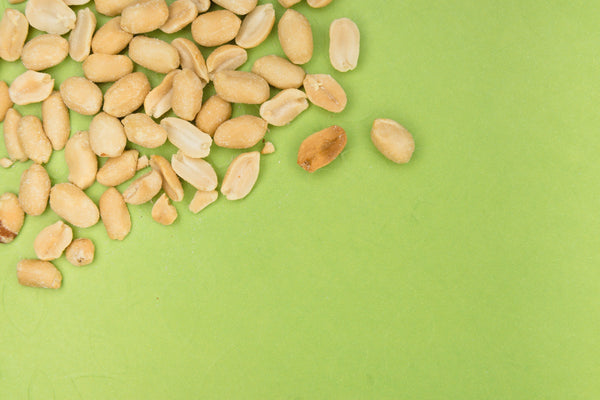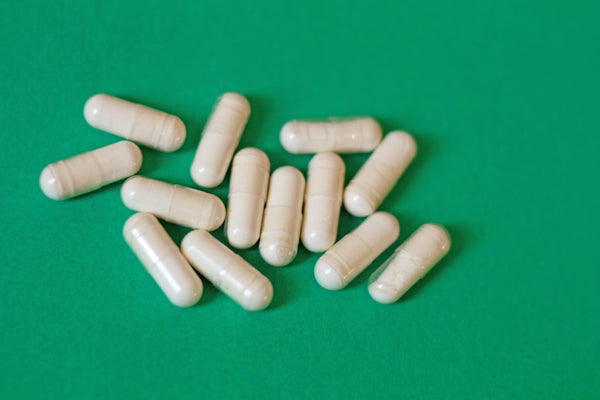A Review of Food Additives Kids Should Avoid with Dr. Jordi Smith, A Pediatric Naturopath
share this article

Ever wondered what's hiding in your family's food that might be causing tummy troubles such as constipation in your kids? The culprits might be found right in aisles of your favorite grocery store, where many of the processed, packaged foods include additives that may impact you and your kid’s digestive health. In today's convenience-driven food culture, it's common to find more additives or preservatives in packaged foods because they can extend the shelf life of food products. However, this means it’s also essential to uncover the often overlooked impact of food additives on our kid’s gut health. As the evidence for supporting gut health in kids continues to grow, we as parents need to better understand potentially harmful ingredients in processed foods to reduce the risk for gastrointestinal problems in our kiddos. In this article, I’m sharing my insights as a Naturopathic Pediatrician on the food additives you should avoid, their potential effects, and what you can choose instead to help you make better choices for your child's digestive well-being.
Daily reads to help your little ones lead happier and healthier lives.
Join the
Happy Gut Club
Emulsifiers / Polysorbates
Emulsifiers such as polysorbates are common additives found in a wide range of processed foods. Other common names might include:
-
Soy Lecithin
-
Diglycerides
-
Carrageenan
-
Guar Gum
Begin Health Expert Tip
Emulsifiers are commonly found in salad dressings, ice creams, sauces, and even some chocolates. While consuming in small amounts every once in a while most likely won’t affect your little one’s too much, it’s best to look for less processed options when you can. Try blending your own salad dressings or opt for more natural options without emulsifiers when reviewing the ingredients on food labels.
Artificial Sweeteners
Artificial sweeteners are popular sugar substitutes due to their low-calorie content. They are commonly used in sugar-free and diet products including sodas, candies, and desserts. However, excessive intakes of artificial sweeteners like saccharin, aspartame, and sucralose have been found to disrupt the balance of the gut microbiome. This disturbance can lead to alterations in the gut bacteria's composition and function, potentially affecting digestion and nutrient absorption.
Furthermore, some studies have suggested a connection between artificial sweeteners and an increased risk of inflammatory bowel disease (IBD), a chronic condition characterized by inflammation in the gastrointestinal tract. For our little ones whose digestive systems are still developing, these artificial additives may pose a higher risk [2]. Artificial sweeteners are also tied to an increased risk of inflammatory bowel disease [3].
Begin Health Expert Tip
Explore natural substitutes like monk fruit, honey, or maple syrup to gradually reduce reliance on artificial sweeteners. Although natural sweeteners are better options, always consume added sugars (even natural sources) in moderation.
Food Dyes
Food dyes are commonly used in processed foods to enhance their visual appeal. They can be found in a wide variety of products such as candies, cereals, sweetened beverages, and high-calorie, processed snacks. Recent studies have raised concerns about their potential impact on gastrointestinal health, particularly in kids. Some artificial food dyes have been linked to disturbances in the balance of gut bacteria. These disturbances can lead to digestive problems, including bloating, abdominal discomfort, and irregular bowel movements [8]. Certain food dyes such as Red 40 or Yellow 5 have been associated with behavioral issues in kids, which may indirectly affect their gastrointestinal well-being [7]. Kids are more susceptible to the effects of artificial additives due to their developing digestive systems [4].
Begin Health Expert Tip
Summary
The world of food additives can be confusing at first, but with a little knowledge and label detective work, you'll be able to navigate the grocery aisles to make the best food choices for your family. Understanding how to look for these ingredients and which swaps to make can ultimately help reduce the risk for any potential digestive disturbances in your little ones.
- Emulsifiers / Polysorbates
- Commonly found in ice creams, salad dressings, creamy sauces. Examples include caesar salad dressing, mayonnaise, and alfredo pasta sauce.
- Associated with intestinal inflammation in kids.
- Opt instead for homemade versions or less processed versions without emulsifiers.
- Artificial Sweetener
- Commonly found in “sugar-free” or low-calorie “diet” products, such as diet soda, sugar-free gums/ candies, sugar-free cookies, flavored instant oatmeals. Examples include Diet Coke, Double-Bubble Gum, Low Sugar Quaker Maple & Sugar Instant Oatmeal.
- Linked to disturbances in the gut microbiome and an increased risk of inflammatory bowel disease.
- Opt instead for natural sweeteners such as monk fruit, honey, or maple syrup in moderation.
- Food Dyes
- Commonly found in candies, cereals, and sweetened beverages. Examples include Fruity Pebbles, M&M’s Chocolate Candies, Mountain Dew.
- Certain dyes like Red 40 or Yellow 5 may disrupt gut bacteria and contribute to digestive disturbances.
Opt instead for natural color sources derived from fruits, vegetables, and spices.

















